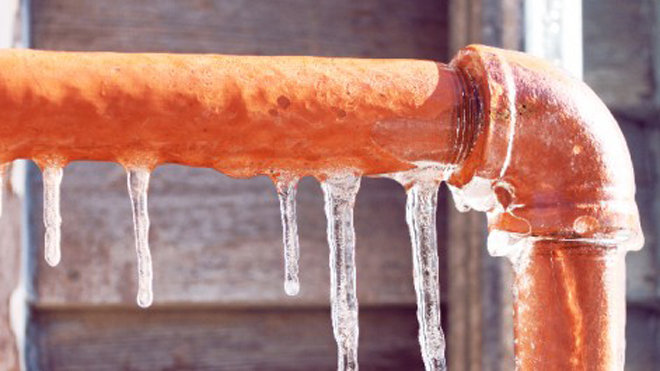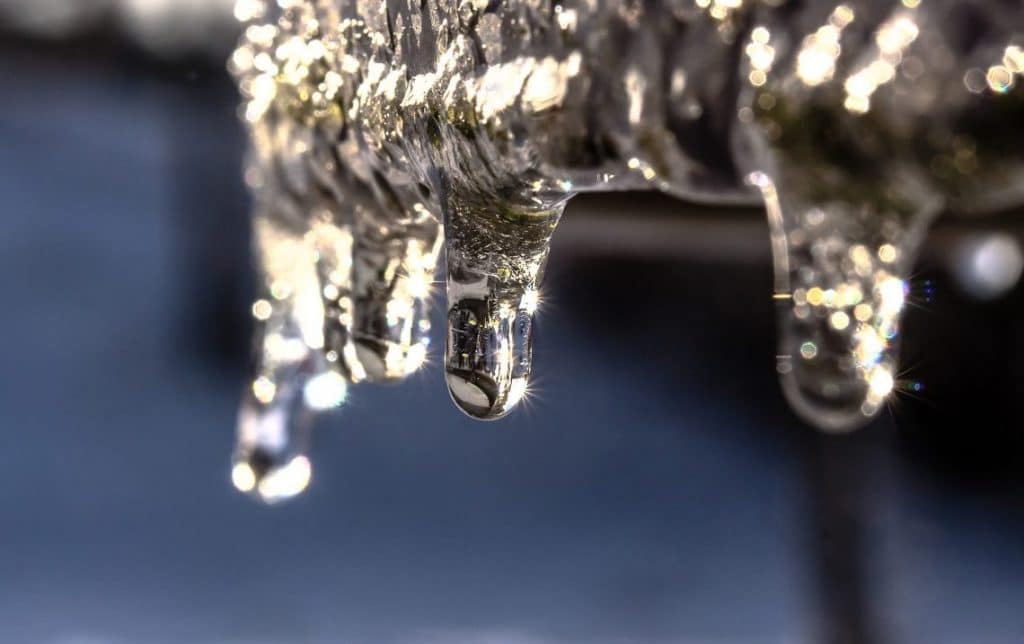Preventing Frozen Pipes in Winter: Critical Strategies
Preventing Frozen Pipes in Winter: Critical Strategies
Blog Article
The article author is making several great pointers regarding How to Prevent Your Pipes From Freezing in general in this post further down.

Cold weather can ruin your plumbing, especially by freezing pipelines. Below's how to prevent it from occurring and what to do if it does.
Intro
As temperature levels decline, the threat of icy pipelines rises, possibly bring about pricey repairs and water damages. Recognizing just how to stop icy pipes is important for house owners in chilly climates.
Avoidance Tips
Shielding prone pipes
Cover pipelines in insulation sleeves or use warmth tape to shield them from freezing temperatures. Concentrate on pipelines in unheated or exterior areas of the home.
Home heating strategies
Keep interior rooms appropriately warmed, specifically locations with pipes. Open cabinet doors to allow cozy air to flow around pipelines under sinks.
Exactly how to identify frozen pipelines
Seek lowered water flow from faucets, uncommon odors or sounds from pipes, and visible frost on revealed pipelines.
Long-Term Solutions
Architectural changes
Take into consideration rerouting pipes far from exterior walls or unheated areas. Add additional insulation to attics, basements, and crawl spaces.
Upgrading insulation
Purchase high-grade insulation for pipelines, attic rooms, and wall surfaces. Correct insulation assists preserve constant temperatures and decreases the risk of icy pipelines.
Securing Outside Plumbing
Garden tubes and exterior faucets
Separate and drain yard hoses prior to winter. Set up frost-proof faucets or cover exterior taps with insulated caps.
Comprehending Frozen Pipelines
What creates pipelines to ice up?
Pipelines ice up when revealed to temperature levels listed below 32 ° F (0 ° C) for extended durations. As water inside the pipelines ices up, it increases, taxing the pipeline wall surfaces and possibly triggering them to rupture.
Dangers and damages
Frozen pipelines can bring about water disturbances, residential or commercial property damage, and pricey repair services. Burst pipes can flooding homes and trigger comprehensive structural damages.
Indications of Frozen Pipes
Recognizing frozen pipes early can avoid them from bursting.
What to Do If Your Pipelines Freeze
Immediate actions to take
If you believe icy pipes, maintain faucets open to relieve stress as the ice melts. Make use of a hairdryer or towels soaked in warm water to thaw pipes slowly.
Verdict
Avoiding frozen pipelines requires aggressive steps and fast responses. By recognizing the causes, indications, and safety nets, property owners can secure their pipes during cold weather.
Helpful Tips to Prevent Frozen Pipes this Winter
UNDERSTANDING THE BASICS: WHY PIPES FREEZE AND WHY IT’S A PROBLEM
Water freezing inside pipes is common during the winter months, but understanding why pipes freeze, and the potential problems it can cause is crucial in preventing such incidents. This section will delve into the basics of why pipes freeze and the associated problems that may arise.
THE SCIENCE BEHIND FROZEN PIPES
When water reaches freezing temperatures, it undergoes a physical transformation and solidifies into ice. This expansion of water as it freezes is the primary reason pipes can burst. As the water inside the pipe freezes, it expands, creating immense pressure on the walls. If the pressure becomes too great, the pipe can crack or rupture, leading to leaks and water damage.
FACTORS THAT CONTRIBUTE TO PIPE FREEZING
Low Temperatures: Extremely cold weather, especially below freezing, increases the risk of pipes freezing. Uninsulated or Poorly Insulated Pipes: Pipes located in unheated areas, such as basements, crawl spaces, or attics, are more prone to freezing. Insufficient insulation or lack of insulation altogether exacerbates the problem. Exterior Wall Exposure: Pipes running along exterior walls are susceptible to freezing as they encounter colder temperatures outside. Lack of Heating or Temperature Regulation: Inadequate heating or inconsistent temperature control in your home can contribute to frozen pipes. PROBLEMS CAUSED BY FROZEN PIPES
- Pipe Bursting: As mentioned earlier, the expansion of water as it freezes can cause pipes to burst, resulting in significant water damage.
- Water Damage: When pipes burst, it can lead to flooding and water damage to your property, including walls, ceilings, flooring, and personal belongings.
- Structural Damage: Prolonged exposure to water from burst pipes can compromise the structural integrity of your home, leading to costly repairs.
- Mold and Mildew Growth: Excess moisture from water damage can create a favorable environment for mold and mildew growth, posing health risks to occupants.
- Disrupted Water Supply: Frozen pipes can also result in a complete or partial loss of water supply until the issue is resolved.
WHY CERTAIN PIPES ARE MORE PRONE TO FREEZING
- Location: Pipes located in unheated or poorly insulated areas, such as basements, crawl spaces, attics, or exterior walls, are at higher risk of freezing.
- Exterior Pipes: Outdoor pipes, such as those used for irrigation or exposed plumbing, are particularly vulnerable to freezing as they are directly exposed to the elements.
- Supply Lines: Pipes that carry water from the main water supply into your home, including the main water line, are critical to protect as freezing in these lines can affect your entire plumbing system.
- Underground Pipes: Pipes buried underground, such as those connected to sprinkler systems or outdoor faucets, can be susceptible to freezing if not properly insulated.
https://busybusy.com/blog/helpful-tips-to-prevent-frozen-pipes-this-winter/

I stumbled upon that blog entry about Preventing and dealing with frozen pipes while browsing the internet. Don't hesitate to take the time to share this blog posting if you enjoyed it. I am grateful for your time. Come back soon.
Recurring Service Plans Report this page